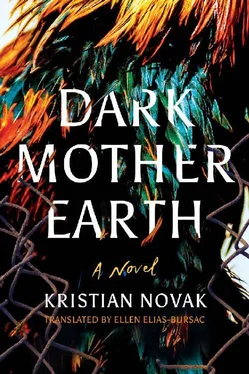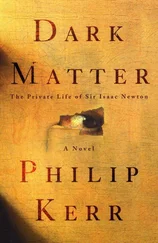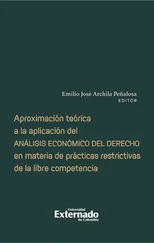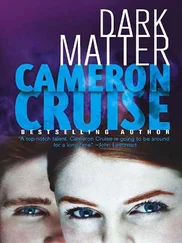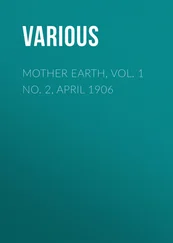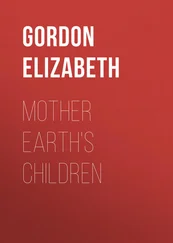No one standing there on other people’s graves, right on top of the genuinely dead and buried, crying as they leaned on the marble headstones, had any idea that I knew the score, that I could tell the whole thing was a farce. I was onto them. To be clear, I was no child genius. Everything I knew about the past was just lumped together in my mind. For all I knew, Emperor Augustus commuted to work in a car. Jesus and Josipa Lisac, the pop singer, watched cartoons together as kids. The will-o’-the-wisp folk Granny had told me about had their own soccer club but didn’t make it into the big leagues, so the owner and the coach had a fight. I thought earthworms turned into snakes when they grew up. In Afghanistan, which we kept hearing about on TV, people went to midnight Mass through deep snow and to Hungary to buy their groceries. I frequently wondered what the pope watched on TV, whether ants could see microbes, and if they could see them, did they torture them the way I did ants? And when I was missing the words for something, I’d just point. I knew other people didn’t understand me most of the time. It’s strange, the number of things in the world I’m missing words for has changed. It’s so much bigger.
I wasn’t particularly sharp, but I was no fool. I knew what funerals were supposed to look like. They looked a lot like this—a pile of flowers and wreaths, a big hole in the ground… but as far as I was concerned, the coffin was just a big wooden box that could have been a decent wardrobe, and everybody was pretending, for my sake, to be burying my dad.
It was all a show put on just for me, an audience of one. The sobs got louder when our neighbors—Pišta, Vest, Rumenige, and Mario Brezovec—began lowering the light-brown coffin into the ground. They sweated and groaned as though with real effort. Pišta slipped and almost fell with the coffin into the open grave. Vest (who didn’t play soccer, but drank a lot and picked fights) was panting, “Fuck, fuck, hey wait, slow down, Pišta,” because the rope was slipping through his hands. The priest coughed delicately to cover up their voices, and just at the right moment because I could have sworn that Mario Brezovec farted from the strain. Things like that don’t happen at real funerals, I reckoned. Angels lend a hand at those.
And, I should say clearly, I had seen my dad’s body. When the big black car with German plates pulled up, and they set the coffin down in our living room by the TV on a makeshift bier, everybody fell quiet. Mom was flustered, she looked out the window and said something to herself. Everybody but me cried, even my big uncle. I wasn’t sad, I was happy because I knew this heap of pale flesh, this dead doll with a bluish double chin and hands crossed over his belly, could not possibly be my dad. Everybody should have been able to see this, even Granny, who bumped into furniture all the time, groping her way through life instead of seeing it. Maybe death was with us, but not on that bier by the TV. Death was smoking cigarettes, sipping coffee, listening to the conversation about how the spuds ain’t doing so hot this summer and it’s high time we started digging the ditches so’s we can pipe in running water .
One by one, mourners picked up a clod of dark earth, gave it a kiss, and dropped it into the grave, where it landed with a thud. The power of their performance stirred in me, if nothing else, a sense of awe.
I had a few ideas for how to explain everything. Maybe he’d left us for another family in Germany, and now everybody was pretending he’d died. I’d seen them do the pretending thing before when I’d wanted a red-and-white lollipop and they told me the factory had closed. Then again, maybe he didn’t have another family. He loved Mom so much he was always kissing her, to my horror, on the mouth. More likely, he was angry at me because last spring, when he was working in his workshop, I told him he smelled bad, and now he was punishing me. If I apologized, he’d come back for sure. The whole village would come over when I hollered, “I knew you were pretending!” and I’d figure out where to punch my uncle so it would hurt the most. Then there’d be a barbecue, and the grown-ups would smoke cigarettes and drink wine spritzers. We’d open presents: my uncle would get a new set of monkey wrenches, my sister would get something for school, and I’d get a toy I couldn’t care less about. The next day, Mom, Dad, my sister, and I would eat at the fish restaurant in Čakovec where I’d be allowed to have a second Coke if I cleaned my plate.
I could only apologize to him, though, if I knew where he was. I asked my sister about it the day before the funeral when she was washing coffee cups and shot glasses—never enough of them in those days. She wouldn’t look me in the eye, said something about angels and how the dead are always by our side. But then a coffee cup fell from her hands into the sink. She rested her elbows on the counter, dropped her head so she could be inside herself for a moment, and then said, angrily, “Dad’s dead, he’s gone, you can only talk to him if you pray or visit his grave.” Maybe she meant I could leave a message for him on his grave and he’d get it. That’s why I bugged her to teach me how to write: I’M SORRY .
Maybe he just wanted to see what I’d do if I thought he was dead. He’d snuck in among the black cornfield of people standing at the cemetery and was watching. If I looked sad, he’d know I cared.
The priest talked for ages. I searched for Dad among all the people there but couldn’t spot him. Maybe he was hiding behind the cypresses, or maybe he’d disguised himself to look like somebody else, like in that TV show, The Saint , about that Simon Templar guy. But if I could see his eyes, I knew I’d recognize him.
That was autumn 1988. After that, I learned how to write and read, I learned it’s impossible for a person to write, draw, or say everything inside their head, I learned what friendship is, how thoughts can be dangerous, and, finally, about death.
After the priest was done blessing everything in the world, Feri, the gravedigger, and his son shoveled dirt onto the coffin, and people began drifting away. My aunt and grandmother had made cakes, coffee, and stiff drinks at home. I played with my cousins in my room. I was quiet, but impatient. Once in a while, someone would come in with a coffee cup or a shot glass and say something like “Don’t you be sad now” or “Your daddy’ll always be with you, even if you can’t see him.” I’d bite my tongue and drive my toy car behind the bed.
They were all quiet, but nobody cried until Godmother went to the car to get lollipops and Milka chocolate for the kids. She worked in Germany like my dad, and I was the only one who called her Godmother—everybody else called her Ljubica. Through the window I thought her sweater was the same one my dad had always worn, and when the door opened, I said, “You’re back!” Everybody stopped talking for a moment, and then Godmother came in, closed the door, took out her already wet handkerchief, and buried her face in it. She knelt and hugged me, and the chocolate and round plastic box of lollipops slipped to the floor. Without a word, she went into the bathroom and didn’t come out until it was only my mother, my sister, me, and the smell of the funeral wreaths left in the house.
The dark came, and it felt like it went deeper into the house that night. I lay in bed, thumbing through a picture book about Iva and Ana taking a plane. My sister said I had to brush my teeth, so I followed her to the bathroom. She opened the door, then quickly closed it and said, “No brushing teeth or washing feet tonight. Put on your PJs, and I’ll tuck you in.” When my sister had opened the bathroom door, I’d seen Mom sitting on the toilet lid and Godmother in front of her holding her head. Mom’s face was red and puffy, and she was crying in a whole different way than people had been crying at the graveyard. No restraint. Her hair was stuck to her forehead, her eyelashes were matted, her mouth was raw and red, and her arms shook even though they were resting on her knees. I heard her whisper, “How’ll I do this all alone?” and then they looked at the door, which my sister quickly shut.
Читать дальше
